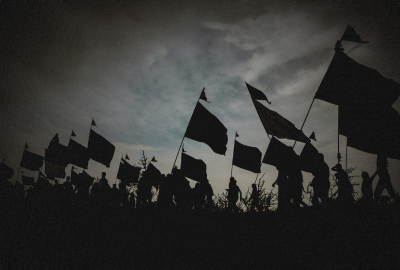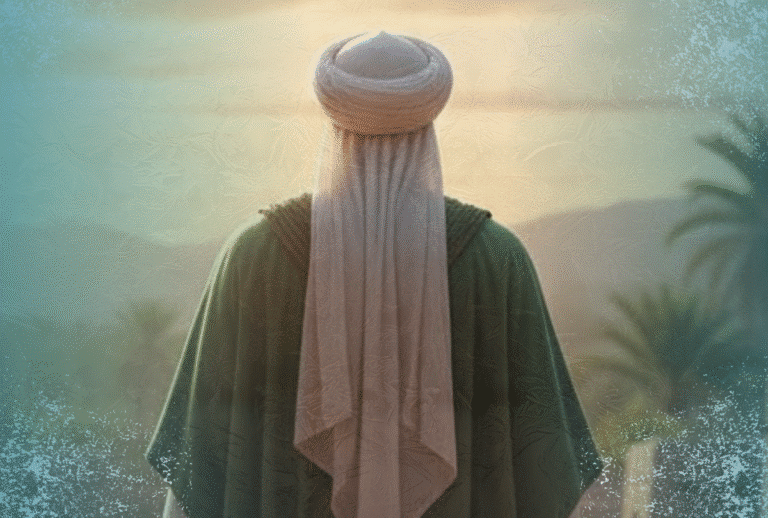Recommended Acts for the Day of Arba’een
The day of Arba’een marks the 40th day after the martyrdom of Imam Hussain (as) and his loyal companions at the Battle of Karbala.
Learn more about the Battle of Karbala here.
While it is a time of profound grief, it is also a moment of spiritual renewal – a chance to reconnect with our values, strengthen our love for the Ahlulbayt (as), and act upon the legacy left behind by Imam Hussain (as).
Here are 4 deeply meaningful acts that you can perform on the day of Arba’een to honor Imam Hussain (as) and draw closer to Allah (swt) through your remembrance and actions.
1. Recite Ziyarat Arba’een
One of the most recommended acts on Arba’een is the recitation of Ziyarat Arba’een, a powerful supplication narrated by Imam Al-Sadiq (as).
This ziyarat not only expresses our love for Imam Hussain (as), but also reaffirms our commitment to his cause – the cause of truth, justice, and standing against oppression.
Part of Ziyarat Arba’een read as:
“I declare positively that I have full faith in you, and I know for certain that you will return. I am fully committed to the laws of my religion and certain of my deeds, my mind and heart ready for your return and my affairs carried out in the light of your instructions, until Allah gives you permission, together with you – along with you, and not with your enemies.”
Whether read at home, in a masjid, or at the shrine in Karbala, this ziyarat connects you to the spiritual mission of Imam Hussain (as) and our current Imam Mahdi (ajtfs).
2. Visit the Grave of Imam Hussain (as)
If you are able to visit Karbala for Arba’een, the ziyarah is among the most rewarding and transformative pilgrimages a believer can make.
Every year, millions walk to Karbala as a symbol of their devotion and mourning – an act of solidarity and faith with the Ahlulbayt (as).
If you’re unable to go in person, don’t lose heart. Sending your salaam from wherever you are, with sincerity and love, is a powerful act in itself. Your devotion is seen by Allah (swt) and received by Imam Hussain (as).
Imam Al-Ridha (as) is reported to have said:
“O’ Son of Shabib! Should you weep for Hussain (as) in the measure that tears roll down your cheeks, Allah (swt) would forgive all the sins committed by you, whether they be the great sins or the small sins and whether they be meagre or immense.” (Al-Amali of Shaykh as-Saduq, p.111)
Learn more about the martyrdom of Imam Hussain (as) here.
3. Give Back in the Name of Imam Hussain (as)
One of the most beautiful ways to honor the legacy of Karbala is to give – not just your tears, but your time, your wealth, and your care.
Sadaqa, supporting the poor, feeding mourners, or helping believers in hardship all echo the values that Imam Hussain (as) died defending.
This Arba’een, you can:
- Sponsor food for a majlis
- Help a struggling family
- Donate to a cause supporting Shia communities in need
At The Zahra Trust, we are committed to serving vulnerable communities across the world – especially during sacred occasions like Arba’een.
Click here to learn more about how you can get involved.
4. Renew Your Faith and Allegiance
Arba’een is not only a day of remembering the past – it is a day of renewing your faith and devotion.
Reconnect with the message of Imam Hussain (as): standing up for truth, no matter the cost. Reaffirm your allegiance to the Ahlulbayt (as) and their mission.
Make heartfelt dua for the reappearance of Imam Mahdi (ajtfs) and for the strength to be among his sincere followers.
Let Arba’een be a day where we not only mourn, but also grow. Where we not only cry, but commit. And where we not only remember, but revive the values of Karbala in our own lives.
Make Arba’een a Day of Hope
As Shia Muslims, Arba’een is not the end of mourning – it is the beginning of action. The sacrifices of Karbala demand more than remembrance; they demand change in how we pray, how we give, how we live.
FAQ
The Day of Arba’een marks 40 days after the martyrdom of Imam Hussain (as) at Karbala. It is a time of mourning, reflection, and spiritual renewal. Shia Muslims commemorate this day to honour the sacrifices made by Imam Hussain (as) and his companions, reaffirming their commitment to the values of justice, truth, and loyalty.
Ziyarat Arba’een is a specific ziyarat (supplication) taught by Imam Al-Sadiq (as) and is one of the most emphasised acts on the Day of Arba’een. Reciting it expresses love for Imam Hussain (as), acknowledges his sacrifice, and reaffirms one’s allegiance to the Ahlulbayt (as). It can be recited whether or not one is physically present in Karbala.
While visiting the grave of Imam Hussain (as) in Karbala is highly recommended and spiritually rewarding, it is not required. You can honour Arba’een from anywhere by sending sincere salaams, making dua, and participating in remembrance gatherings. Your devotion is still accepted and meaningful.
You can honour Imam Hussain (as) by giving charity, feeding others, helping those in need, or supporting humanitarian causes. These acts reflect the selflessness and compassion of the Ahlulbayt (as), especially Imam Hussain (as).
Arba’een is a time to renew your allegiance to Imam Hussain (as), reflect on the values of Karbala, and commit to living a life of integrity, resistance against injustice, and love for the Ahlulbayt (as). It is also a time to pray for the reappearance of Imam Mahdi (ajtfs) and for strength to follow the path of truth.


 Donate Now
Donate Now
 Donate
Donate









